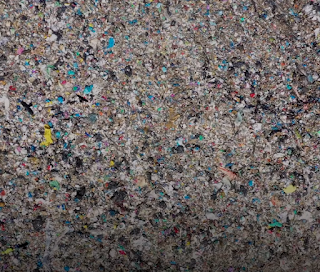What If we send our trash to Sun
We dumped our trash to Sun!
Welcome to your new landfill: a giant ball of burning gas that we call the Sun. With surface temperatures of 5500 degrees celcius, it could obliterate any type of trash we throw at it, from pesky plastics to nuclear waste. And everything we're launching into space these days, surely it wouldn't be too hard to send a little trash to the Sun.
But, how much would it cost? What dangers would be involved? And why would it be easier to send a Rocket right out of our Solar System than it would be to get anything to Sun?
Can we send our trash to the Sun?
Our planet is filling up with garbage. At the rate we're going, by 2050 we'll be dealing 12 billion tonnes of plastic sitting in landfills.
That's 35,000 times the weight of the Empire State Building! Sure it'd be nice to put it all in some giant rockets and blast it off, but there would be some serious risk involved. Like, what would happen if there was an accident while a rocket was in the Earth's atmosphere and all our trash and nuclear waste came running back on us?
The Sun is about 150 million km away from Earth, so getting any trash there would be extremely expensive. To put it in perspective, the Ariane 5, a modern European Rocket, has a payload capacity of 7000 kg and costs approximately $200 million to launch into orbit. So to get all of the planet's garbage headed off towards the Sun would take 168 million of these Rockets, just to remove our trash for one year! The price tag would be $33 trillion. And that's just the cost of getting the rockets into orbit around the Earth. If we wanted to get them from the Earth's orbit to the Sun, it would require 10 times more fuel! Ok,we get it. It would cost a lot of money, but that's just beginning of our problems.
You see, Earth moves around the Sun at 30 km/sec, in a direction that is basically always sideways related to Sun. If you were to launch a rocket from Earth staright towards the Sun, it wouldn't lose that sideways speed, and so it would miss its target. The only way we'd be able to get that rocket right into the Sun would be if we could cancel out all that sideways motion by slowing down the rocket by 30 km/s. How tricky would that be? Well, put it this way, if we could speed up rocket by 12 km/s, it would have enough momentum to get out of our Solar System.
To crash into the Sun, you need to lose 30 km/s. To get out of our Solar System you only have to gain 12 km/s. Getting to the Sun takes 3 times the effort! For the sake of efficiency and fuel costs, it's better to go to the outer Solar System, where the rockets speed would be lower, the use a little booster to fire the engines enough that the rocket and it's load of wastes would fall into the Sun. Even if we were able to figure all this out, and successfully deliver our garbage rocket directly to the Sun, it probably wouldn't be worth all the risks involved.
"What risks?" you ask. Well, for starters let's say we've got our first rocket all loaded up with buch of nuclear waste, and just as it's about to take off, it explodes on the launchpad. Now we've got some fun nuclear fallout to deal with. But maybe we're a little luckier, and the rocket launch itself is successful, but it explodes once it's in orbit. The best case scenario here is that we add a ton of debris to the already growing problem of space junk circling the Earth.
The worst case scenario is that is that our exploding rocket, packed with thousands of tons of household trash and spent nuclear fuel, comes crashing down back on us.
Either way, it's not good, and this whole operation really doesn't seem worth it. Maybe instead of looking for these outlandish solutions, we should just, stop producing so much waste...
You can even visit this page for more science fun facts: Science Facts





Nice content
ReplyDeleteThanks
Delete